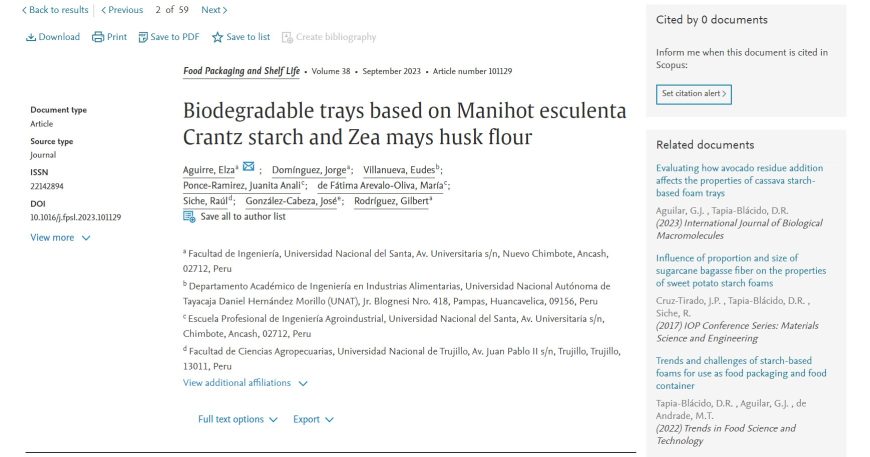Abstract
The escalating interest in natural substitutes for polystyrene in packaging development has directed attention towards vegetable residues such as corn husk. The objective of this study is to engineer biodegradable trays via the thermoforming process using six different formulations of cassava starch and corn husk flour, each previously sieved with mesh sizes of 100 and 80, respectively. The trays were thermoformed at temperatures of 170 °C (lower side) and 200 °C (upper side), with a formation duration of two minutes. Physicochemical analyses of the trays reveal that increased concentrations of corn husk flour impart a shift in tray coloration from cream to a reddish-yellow hue. Parameters such as density (0.12–0.29 g/cm3), moisture content (5.65–9.94%), solubility (75.92–86.85%), water absorption (52.17–102.35%), and volatile solids (>65.34%) were evaluated. Concerning mechanical properties, increased concentrations of corn husk flour enhanced hardness (12.56–23.95 N), while fracturability ranged between 6.59 and 8.11 mm, tension from 0.012 to 0.024 MPa, and elongation from 0.53% to 1.52%. The blend of 85% cassava starch and 15% corn husk flour exhibited promising physical and mechanical properties for the formation of biodegradable trays. This formulation underwent further examination through X-ray diffraction analysis (XRD), thermogravimetric analysis (TGA), Fourier Transform Infrared Spectroscopy (FTIR), and Scanning Electron Microscopy (SEM). Future investigations should explore the potential applications of these biodegradable trays, which could serve as packaging for fruits, vegetables, bakery products, and more. © 2023 Elsevier Ltd









